Yue Him Wong Tim
Exploring Boundary of GPT-4V on Marine Analysis: A Preliminary Case Study
Jan 04, 2024Abstract:Large language models (LLMs) have demonstrated a powerful ability to answer various queries as a general-purpose assistant. The continuous multi-modal large language models (MLLM) empower LLMs with the ability to perceive visual signals. The launch of GPT-4 (Generative Pre-trained Transformers) has generated significant interest in the research communities. GPT-4V(ison) has demonstrated significant power in both academia and industry fields, as a focal point in a new artificial intelligence generation. Though significant success was achieved by GPT-4V, exploring MLLMs in domain-specific analysis (e.g., marine analysis) that required domain-specific knowledge and expertise has gained less attention. In this study, we carry out the preliminary and comprehensive case study of utilizing GPT-4V for marine analysis. This report conducts a systematic evaluation of existing GPT-4V, assessing the performance of GPT-4V on marine research and also setting a new standard for future developments in MLLMs. The experimental results of GPT-4V show that the responses generated by GPT-4V are still far away from satisfying the domain-specific requirements of the marine professions. All images and prompts used in this study will be available at https://github.com/hkust-vgd/Marine_GPT-4V_Eval
MarineGPT: Unlocking Secrets of Ocean to the Public
Oct 20, 2023
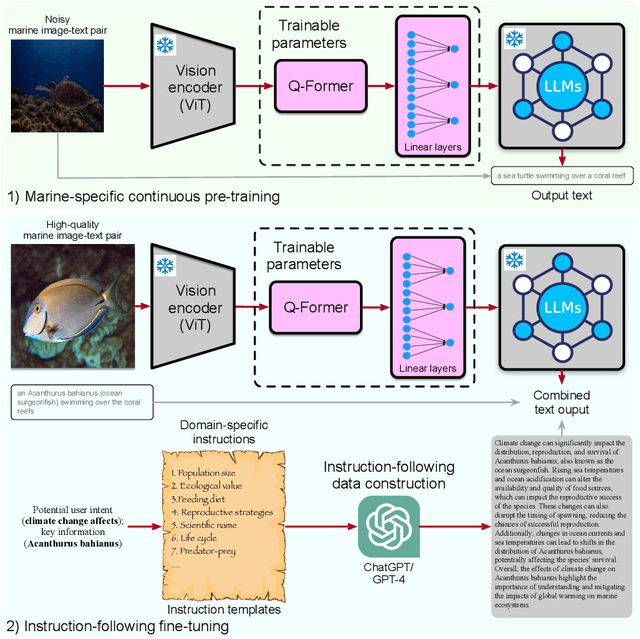

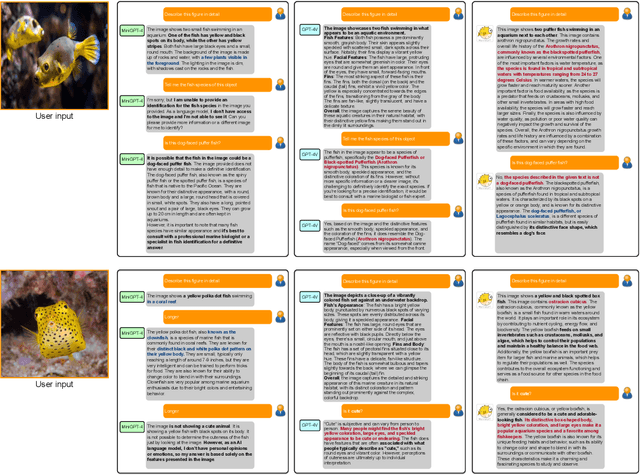
Abstract:Large language models (LLMs), such as ChatGPT/GPT-4, have proven to be powerful tools in promoting the user experience as an AI assistant. The continuous works are proposing multi-modal large language models (MLLM), empowering LLMs with the ability to sense multiple modality inputs through constructing a joint semantic space (e.g. visual-text space). Though significant success was achieved in LLMs and MLLMs, exploring LLMs and MLLMs in domain-specific applications that required domain-specific knowledge and expertise has been less conducted, especially for \textbf{marine domain}. Different from general-purpose MLLMs, the marine-specific MLLM is required to yield much more \textbf{sensitive}, \textbf{informative}, and \textbf{scientific} responses. In this work, we demonstrate that the existing MLLMs optimized on huge amounts of readily available general-purpose training data show a minimal ability to understand domain-specific intents and then generate informative and satisfactory responses. To address these issues, we propose \textbf{MarineGPT}, the first vision-language model specially designed for the marine domain, unlocking the secrets of the ocean to the public. We present our \textbf{Marine-5M} dataset with more than 5 million marine image-text pairs to inject domain-specific marine knowledge into our model and achieve better marine vision and language alignment. Our MarineGPT not only pushes the boundaries of marine understanding to the general public but also offers a standard protocol for adapting a general-purpose assistant to downstream domain-specific experts. We pave the way for a wide range of marine applications while setting valuable data and pre-trained models for future research in both academic and industrial communities.
Marine Video Kit: A New Marine Video Dataset for Content-based Analysis and Retrieval
Sep 23, 2022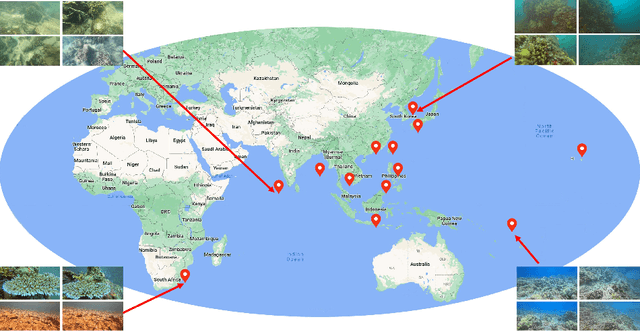
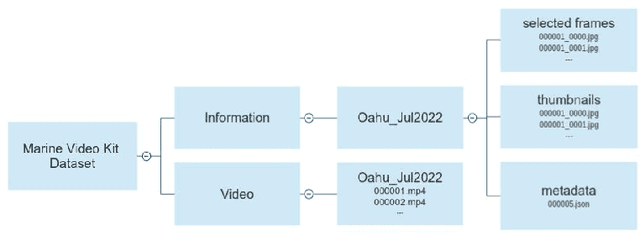
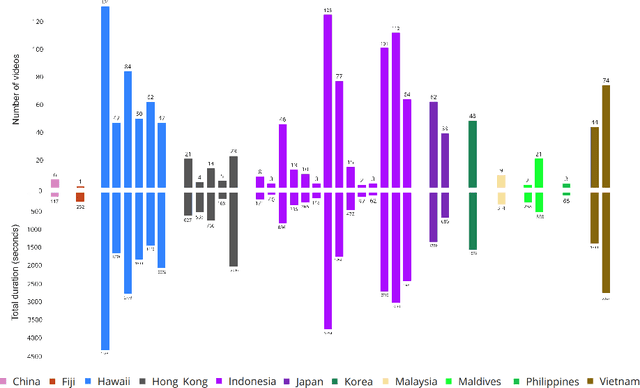
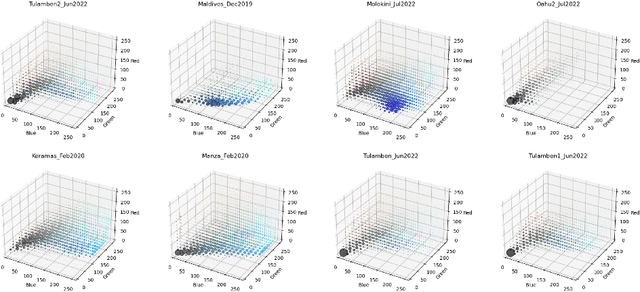
Abstract:Effective analysis of unusual domain specific video collections represents an important practical problem, where state-of-the-art general purpose models still face limitations. Hence, it is desirable to design benchmark datasets that challenge novel powerful models for specific domains with additional constraints. It is important to remember that domain specific data may be noisier (e.g., endoscopic or underwater videos) and often require more experienced users for effective search. In this paper, we focus on single-shot videos taken from moving cameras in underwater environments which constitute a nontrivial challenge for research purposes. The first shard of a new Marine Video Kit dataset is presented to serve for video retrieval and other computer vision challenges. In addition to basic meta-data statistics, we present several insights and reference graphs based on low-level features as well as semantic annotations of selected keyframes. The analysis contains also experiments showing limitations of respected general purpose models for retrieval.
 Add to Chrome
Add to Chrome Add to Firefox
Add to Firefox Add to Edge
Add to Edge